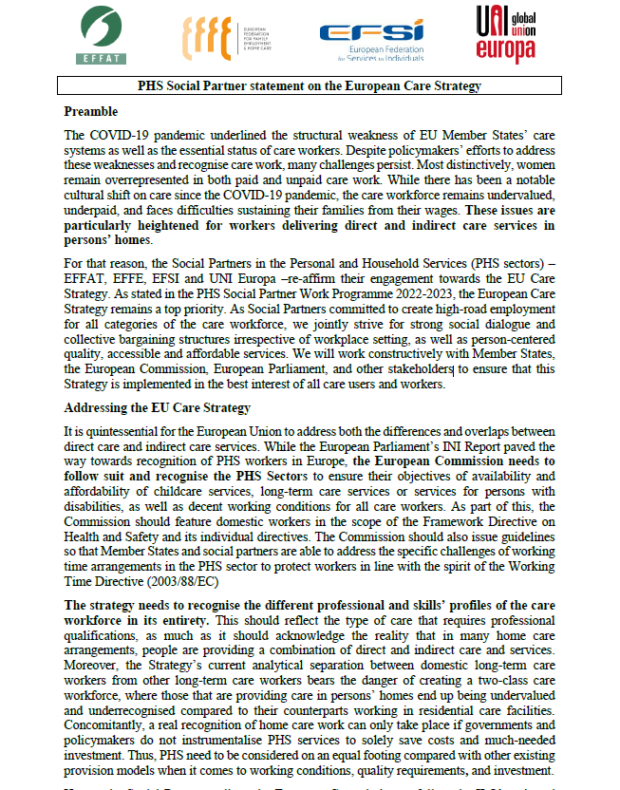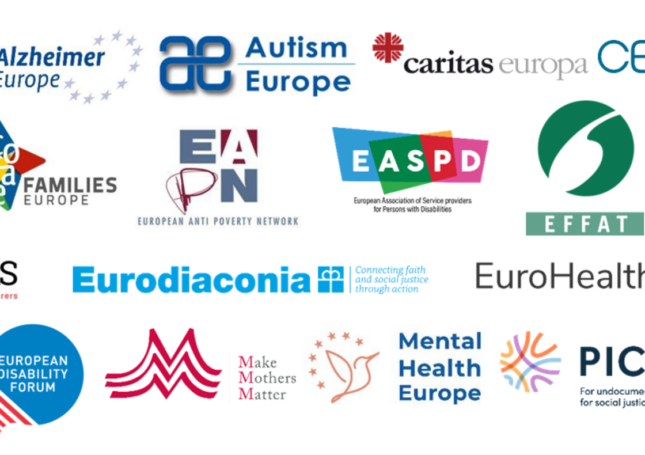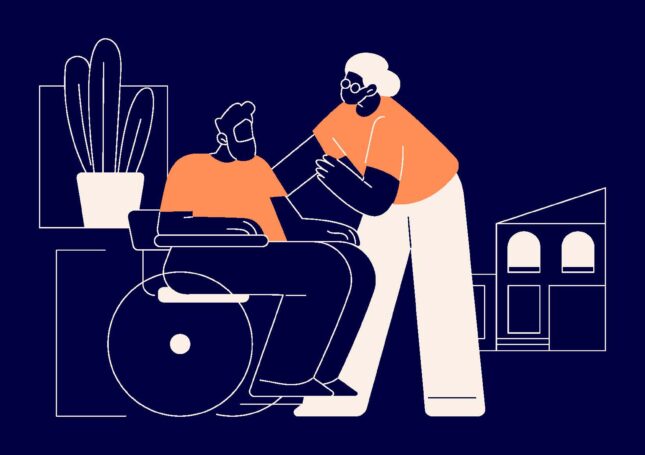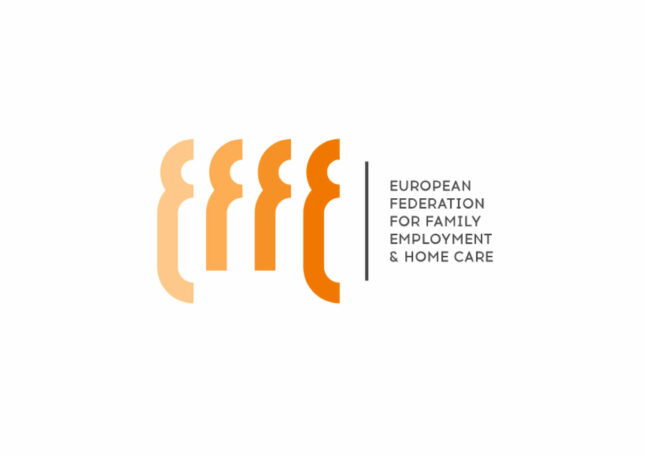
The COVID-19 pandemic underlined the structural weakness of EU Member States’ care systems as well as the essential status of care workers. Despite policymakers’ efforts to address these weaknesses and recognise care work, many challenges persist. Most distinctively, women remain overrepresented in both paid and unpaid care work. While there has been a notable cultural shift on care since the COVID-19 pandemic, the care workforce remains undervalued, underpaid, and faces difficulties sustaining their families from their wages. These issues are particularly heightened for workers delivering direct and indirect care services in persons’ homes.
For that reason, the Social Partners in the Personal and Household Services (PHS sectors) – EFFAT, EFFE, EFSI and UNI Europa –re-affirm their engagement towards the EU Care Strategy. As stated in the PHS Social Partner Work Programme 2022-2023, the European Care Strategy remains a top priority. As Social Partners committed to create high-road employment for all categories of the care workforce, we jointly strive for strong social dialogue and collective bargaining structures irrespective of workplace setting, as well as person-centered quality, accessible and affordable services. We will work constructively with Member States, the European Commission, European Parliament, and other stakeholders


